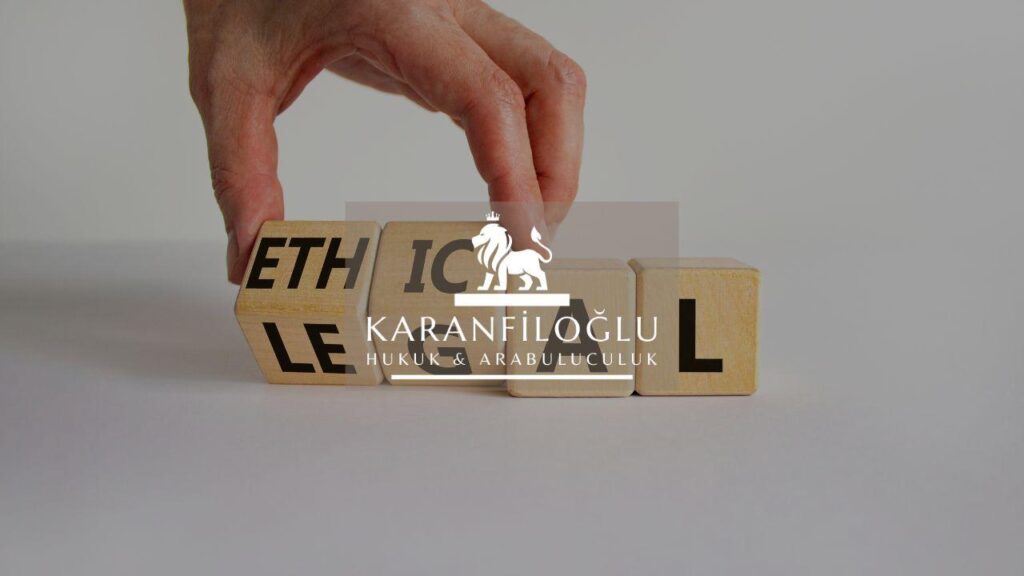Navigating the complexities of real estate transactions in Turkey necessitates a thorough understanding of the legal framework governing property rights, sales, and acquisitions. At Karanfiloglu Law Office, our team of experienced attorneys is well-versed in the intricacies of Turkish real estate law, ensuring that our clients receive impeccable guidance throughout the entire process. The Turkish Civil Code (Law No. 4721) and the Land Registry Law (Law No. 2644) are pivotal in overseeing real estate dealings, providing essential regulations on property ownership, transfer procedures, and the requisite formalities for registration at the Land Registry. Additionally, the Foreign Direct Investment Law (Law No. 4875) outlines specific provisions for foreign nationals engaging in property transactions, thus adding another layer of regulation to consider. Our comprehensive services ensure that every transaction adheres to the statutory requirements, protecting our clients’ interests and facilitating a seamless real estate experience in Turkey.
Understanding Turkish Property Laws
Understanding Turkish property laws is critical for anyone considering a real estate transaction in Turkey. The Turkish Civil Code (Law No. 4721) forms the backbone of property law, detailing the principles of ownership, possession, and other real rights. Under this code, property ownership is categorized into two main types: individual ownership and joint ownership. Furthermore, the Land Registry Law (Law No. 2644) mandates the formal registration of all real estate transactions with the Land Registry Directorate, making it a vital step in the verification and protection of property rights. The accurate registration process ensures transparency and legal security, thereby preventing disputes and safeguarding the buyer’s interests. For instance, Article 1007 of the Civil Code stipulates the requirement for notarization of real estate sale contracts before registration, reinforcing the importance of adhering to these procedural norms.
In addition to these foundational statutes, the Turkish laws also accommodate comparatively unique stipulations concerning foreign investors. The Foreign Direct Investment Law (Law No. 4875) permits foreign nationals to acquire real estate within delineated limits and under specified conditions. Article 35 of the Land Registry Law further elaborates on these constraints, dictating that foreign individuals can purchase up to 30 hectares of property, with additional restrictions in designated military and security zones. These legal provisions demand meticulous compliance, emphasizing the critical role of legal counsel in navigating such transactions. At Karanfiloglu Law Office, we provide tailored services to ensure foreign clients meet all regulatory prerequisites, facilitating a smooth acquisition process. Our expertise helps mitigate potential legal pitfalls, ensuring that clients can confidently invest in Turkish real estate while adhering to local laws and regulations.
An equally crucial aspect of Turkish real estate transactions is addressing potential disputes and ensuring robust legal recourse. The Turkish Code of Obligations (Law No. 6098) provides comprehensive statutes on contractual obligations and liabilities, which are vital when resolving conflicts that may arise during property dealings. Articles 237 and 239, for instance, cover the buyer’s rights to withdraw from a contract or demand compensation if the property is not delivered as agreed. Additionally, the Code of Civil Procedure (Law No. 6100) outlines the litigation processes and remedies available in the event of a dispute, including provisions for urgent injunctions under Article 389 to prevent irreparable harm. At Karanfiloglu Law Office, our team of seasoned attorneys is adept at navigating these legal intricacies, offering steadfast support to enforce our clients’ rights effectively. We ensure that every aspect of dispute resolution is approached with diligence, thereby safeguarding our clients’ investments and fostering a secure real estate environment.
Essential Steps for Foreign Buyers
Foreign buyers looking to purchase property in Turkey must follow several essential steps to ensure the transaction complies with local laws and regulations. The initial step involves obtaining a tax identification number from the Turkish tax office, a mandatory requirement for all financial transactions, including real estate purchases. Additionally, foreign buyers must open a Turkish bank account to facilitate financial dealings and transfer funds. It is crucial to verify the property’s legal status and conduct due diligence, including checking for any existing mortgages or restrictions at the Land Registry Office, as mandated by the Land Registry Law (Law No. 2644). Prospective buyers are also advised to secure a valuation report from a licensed appraisal company, which has become compulsory for foreign transactions as of 2019, according to regulations by the Capital Markets Board. At Karanfiloglu Law Office, we assist our clients through each of these critical steps, ensuring a smooth and legally compliant buying process.
Once these preliminary steps are accomplished, the next stage involves signing a reservation agreement and a property sales contract, both of which should be meticulously reviewed to ensure they meet the requirements outlined in the Turkish Civil Code (Law No. 4721). The reservation agreement typically involves a deposit, securing the property until the sales contract is finalized. It is advisable for foreign buyers to have these documents translated into their native language to fully comprehend the terms and conditions. The property sales contract should clearly outline all pertinent details, including the price, payment schedule, and any other specific terms agreed upon. This contract must also be notarized to be legally valid. At Karanfiloglu Law Office, we offer thorough contract review and translation services, ensuring that our clients’ interests are fully protected and that all legal stipulations are accurately addressed before proceeding to the final stages of the transaction.
The final step in the real estate transaction process for foreign buyers is the formal transfer of ownership, which takes place at the Land Registry Office. Both the buyer and seller, or their authorized representatives, must be present to sign the official transfer deed in front of a Land Registry official. This deed must be in accordance with the Land Registry Law (Law No. 2644) to ensure its validity. The buyer is responsible for paying the title deed transfer tax, which is calculated as a percentage of the declared property value, currently set at 4%, shared equally between the buyer and the seller. Additionally, it’s imperative to confirm that all municipal taxes and dues related to the property are fully paid before the final transfer. At Karanfiloglu Law Office, we meticulously oversee this stage, from the preparation of necessary documents to the completion of the transfer at the Land Registry, guaranteeing a legally compliant and stress-free transaction for our clients.
Navigating Taxation in Turkish Real Estate
Taxation is a critical aspect to consider when engaging in real estate transactions in Turkey, as various taxes apply to property purchasing, owning, and selling. For instance, property buyers face a title deed conveyance tax, known as “Tapu Harcı,” which is typically 4% of the declared purchase value, mandated by Article 35 of the Land Registry Law (Law No. 2644). Moreover, property owners are subject to annual property tax rates ranging from 0.1% to 0.6% depending on the type and location of the property, as outlined in the Real Estate Tax Law (Law No. 1319). In addition, income derived from real estate sales is also taxable under the Capital Gains Tax provisions specified in the Income Tax Law (Law No. 193). At Karanfiloglu Law Office, we assist our clients by providing expert advice on minimizing tax liabilities while ensuring full compliance with Turkish tax regulations.
Foreign investors should be particularly aware of additional tax considerations that may impact their real estate transactions in Turkey. The Value Added Tax (VAT), guided by the VAT Law (Law No. 3065), may apply to certain property sales, especially for commercial properties or new developments. It’s essential for foreign buyers to understand whether VAT exemptions, such as those promulgated by Article 13/i of the VAT Law, might apply to their transactions. Additionally, under the Diplomatic Property Purchase Law (Law No. 6302), foreign nationals must adhere to specific criteria regarding property acquisition, including obtaining clearance from various Turkish authorities. Notably, income generated from rental properties owned by foreign investors is also subject to withholding tax, as delineated in Article 94 of the Income Tax Law (Law No. 193). At Karanfiloglu Law Office, we offer tailored tax consultation services to navigate these complex provisions, ensuring that foreign investors can optimize their tax strategy while remaining compliant with Turkish regulations.
Another important consideration in the realm of Turkish real estate taxation is the inheritance and gift tax, which is governed by the Inheritance and Gift Tax Law (Law No. 7338). This tax is imposed on the transfer of property ownership through inheritance or donation and is scaled progressively based on the value of the property. Rates vary between 1% and 30%, depending on the relationship between the giver and the recipient, as well as the appraised value of the property. Furthermore, it is crucial for property owners to be aware of the potential liabilities related to municipal fees, including environmental cleaning taxes and other local levies, as specified in various municipal regulations. At Karanfiloglu Law Office, our legal experts thoroughly examine every aspect of real estate transactions to provide comprehensive advice on minimizing tax exposure, ensuring our clients are well-prepared and compliant with all pertinent Turkish tax laws.
Disclaimer: This article is for general informational purposes only and you are strongly advised to consult a legal professional to evaluate your personal situation. No liability is accepted that may arise from the use of the information in this article.







